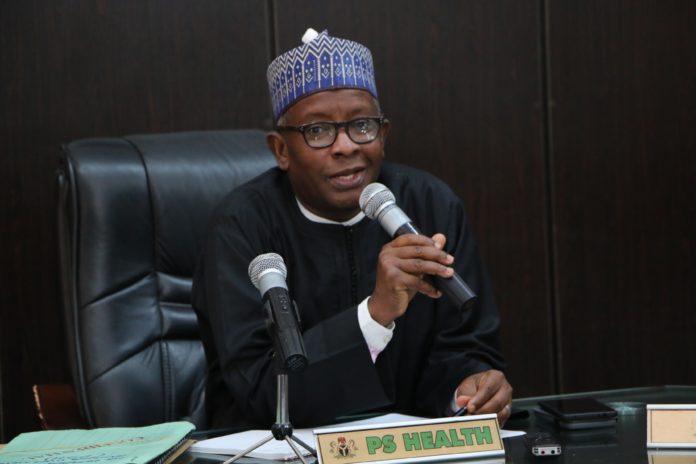The Permanent Secretary, Federal Ministry of Health, Alh. Abdulaziz Abdullahi Mashi, has called on Nigerians to voluntarily donate blood regularly to save lives.
The Permanent Secretary made this call, while briefing the press, as part of the activities to commemorate the 2019 World Blood Donor Day, in Abuja recently.
Mashi said, access to safe blood and blood products is key component of effective health system and a significant building block, for successful achievement of health related Sustainable Development Goals.
“With a population of over 180 million, Nigeria’s estimated blood need is about two million units per annum. Unfortunately, much less is currently donated, leading to avoidable death, morbidity or ill health particularly amongst our womenfolk, new-born, children, victims of road crash and insurgencies.”He added.
The Permanent Secretary, said that as long as demand of blood was outstripping the supply, touting and racketeering of blood products would continue to thrive. However, he added, if only one percent of the Nigerian adult population would commit themselves to voluntarily donate blood, the situation would be addressed.
He said that the legislative process of the draft bill for establishment of a National Blood Service has commenced in earnest and is expected to be concluded early in the tenure of the recently inaugurated 9th National Assembly.
Also speaking during the event, the World Health Organization, (WHO) Officer-in-Charge, Dr. Clement Peter, who unfolded the benefits of blood donation said, apart from saving lives, there were many other benefits of blood donation to the donor.
According to Peter, “Blood donation can reduce the risk of certain heart diseases and cancers, it stimulates blood cell production and calories are burnt from donating blood.”
Earlier, the Country Director, Safe Blood for Africa, Dr. Salihu Aliyu, called for a legal framework to centralize the donation of blood only at National Blood Transfusion Service. He said the blood donated at the National Blood Transfusion Service could be used by any hospital that required the use of blood.
Boade Akinola (Mrs.)
Director, Media and Public Relations
FMOH






